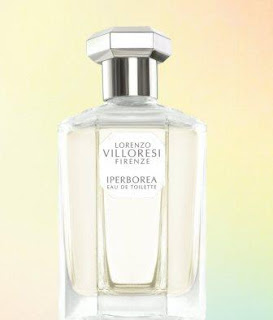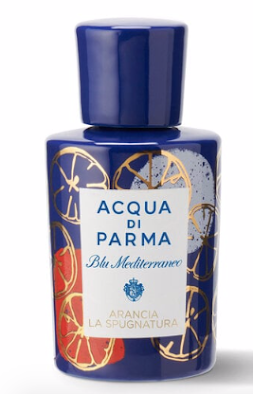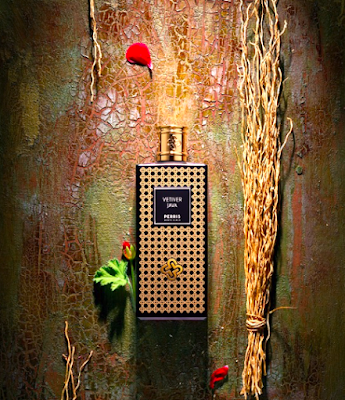Iperborea by Lorenzo Villoresi (2010)
Iperborea, or "Hyperborea".
That means: "beyond Borea". That means, "beyond the area where the cold wind blows."
That means, where cold has been defeated once for all, and the climate is mild, sheep give birth to their lambs three times a year, and the generous land allows more crops. Where nature is so rich that fruits dry on trees and dozens of rivers roll over hills covered with lush forests. The perfect land, ancient Atlantis, the island of eternal spring.
When Lorenzo Villoresi started talking about his new perfume, more than a year ago, I was excited that he decided to call it “Iperborea”, a cultured and refined reference to a place actually existed in distant past and lost forever, a place that mankind has always felt a great nostalgia of.
The early history of the Mediterranean populations and the myth of Atlantis (or Mu, Hyperborea, Island of the Foceans, Sardinia, names depending mainly on the historical period) is a topic fascinating me deeply since years.
I read several books serious and documented books (including the monumental "“Le Colonne d’Ercole, un inchiesta – Hercule’s Pillars, an investigation" by journalist Sergio Frau, Urrà Edizioni), I follow some blogs and forums dealing about related topics, so I thought I knew this perfume even before smelling it.
So when I tested it, I had trouble trying to separate "my" idea of Hyperborea from the real scent Maestro Villoresi had thought. Having studied so much, I wondered "Yes, but… myrtle? Where is myrtle in this scent?", and then said to myself "OK, no myrtle here, but the salt and sea-waves, the fact we’re on an island, is easily perceived”; "Ok, but fruits are lacking"; "Yes, but there’s a lot of flowers, the “spring” idea is just perfectly rendered, with the bright sunlight shining over the composition".
In short, the more I smelled, the more I was puzzled.
More of it because, along with some friends, we’d been able to follow few steps of the work-in-progress, and I was aware it took more than a year to complete it. This means that, as in all the creations by Villoresi, there’s an intellectual vision behind it, and a study well thought-over.
I played with it a lot before deciding to cleare my mind of any preconceived idea, and simply try to tune in with the scent’s voice, without trying to intellectualize too much.
And finally, I was on something. I saw a girl. A very young girl in the spring of her life, that period when there are only promises and everything is good expectations. She’s of light complexion and delicate figure, but inside her, she’s got the strength of her dreams. I see her as she prepares to go out, she pins hair in a bun, dresses, but then puts no perfume on –she’s not yet interested in sensuality-, but still, she spreads her hands and neck with a cream, scented with white flowers, provoking a smile of pleasure on her face. A cream with a light fragrance, delicate, with white flowers like lily of the valley and cyclamen, with a touch of citrus.
Here, finally, what this perfume is about: "Hyperborea" is not intended as a geographical place but as a period of time: a woman’s springtime, when she’s definitely blossoming, but she’s still in middle ground between what she was and what she’ll be.
The scent tends to remain fairly stable over time, with no particular evolution, the general feeling stays bright and powdery. I found it interesting that, although it seems a scent played on delicacy and innocence, in fact it shows a pretty good projection in space and is a long-living one! The ethereal evanescence is little more than an optical illusion, masterfully created by the author.
Villoresi's webiste here
That means: "beyond Borea". That means, "beyond the area where the cold wind blows."
That means, where cold has been defeated once for all, and the climate is mild, sheep give birth to their lambs three times a year, and the generous land allows more crops. Where nature is so rich that fruits dry on trees and dozens of rivers roll over hills covered with lush forests. The perfect land, ancient Atlantis, the island of eternal spring.
When Lorenzo Villoresi started talking about his new perfume, more than a year ago, I was excited that he decided to call it “Iperborea”, a cultured and refined reference to a place actually existed in distant past and lost forever, a place that mankind has always felt a great nostalgia of.
The early history of the Mediterranean populations and the myth of Atlantis (or Mu, Hyperborea, Island of the Foceans, Sardinia, names depending mainly on the historical period) is a topic fascinating me deeply since years.
I read several books serious and documented books (including the monumental "“Le Colonne d’Ercole, un inchiesta – Hercule’s Pillars, an investigation" by journalist Sergio Frau, Urrà Edizioni), I follow some blogs and forums dealing about related topics, so I thought I knew this perfume even before smelling it.
So when I tested it, I had trouble trying to separate "my" idea of Hyperborea from the real scent Maestro Villoresi had thought. Having studied so much, I wondered "Yes, but… myrtle? Where is myrtle in this scent?", and then said to myself "OK, no myrtle here, but the salt and sea-waves, the fact we’re on an island, is easily perceived”; "Ok, but fruits are lacking"; "Yes, but there’s a lot of flowers, the “spring” idea is just perfectly rendered, with the bright sunlight shining over the composition".
In short, the more I smelled, the more I was puzzled.
More of it because, along with some friends, we’d been able to follow few steps of the work-in-progress, and I was aware it took more than a year to complete it. This means that, as in all the creations by Villoresi, there’s an intellectual vision behind it, and a study well thought-over.
I played with it a lot before deciding to cleare my mind of any preconceived idea, and simply try to tune in with the scent’s voice, without trying to intellectualize too much.
And finally, I was on something. I saw a girl. A very young girl in the spring of her life, that period when there are only promises and everything is good expectations. She’s of light complexion and delicate figure, but inside her, she’s got the strength of her dreams. I see her as she prepares to go out, she pins hair in a bun, dresses, but then puts no perfume on –she’s not yet interested in sensuality-, but still, she spreads her hands and neck with a cream, scented with white flowers, provoking a smile of pleasure on her face. A cream with a light fragrance, delicate, with white flowers like lily of the valley and cyclamen, with a touch of citrus.
Here, finally, what this perfume is about: "Hyperborea" is not intended as a geographical place but as a period of time: a woman’s springtime, when she’s definitely blossoming, but she’s still in middle ground between what she was and what she’ll be.
The scent tends to remain fairly stable over time, with no particular evolution, the general feeling stays bright and powdery. I found it interesting that, although it seems a scent played on delicacy and innocence, in fact it shows a pretty good projection in space and is a long-living one! The ethereal evanescence is little more than an optical illusion, masterfully created by the author.
Villoresi's webiste here




Commenti